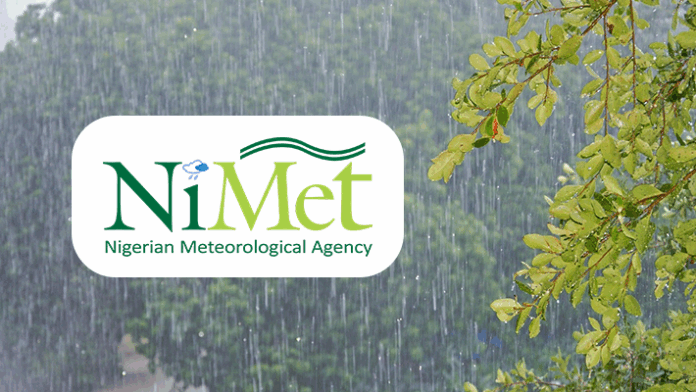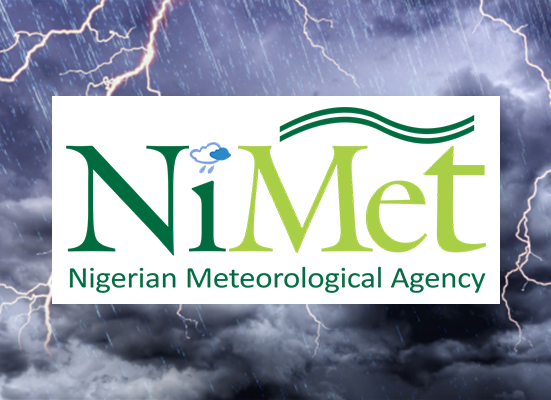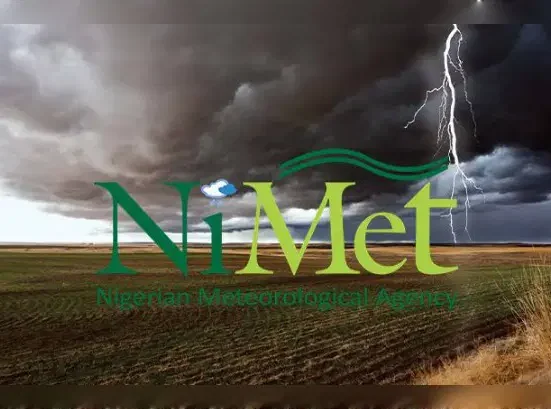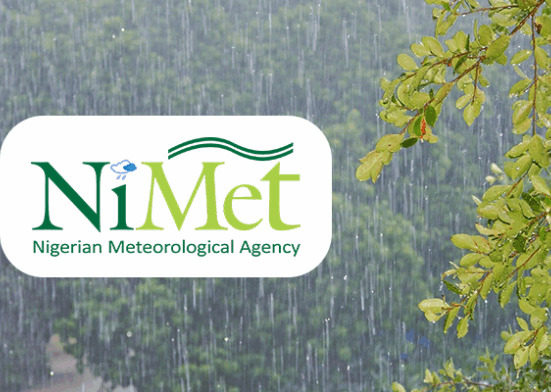The Nigerian Meteorological Agency (NiMet) has issued a fresh weather advisory forecasting episodes of moderate to heavy rainfall accompanied by thunderstorms across various parts of the country from Monday through Wednesday. The agency has also warned of the heightened possibility of flash flooding, especially in flood-prone and low-lying areas, urging residents to stay alert and take precautionary measures.
In its latest three-day weather outlook, NiMet highlighted that the anticipated weather pattern would be driven by seasonal atmospheric dynamics, including increased moisture inflow from the Atlantic and prevailing wind patterns typical of Nigeria’s wet season. The forecast specifically indicated that parts of the North Central, South-East, South-South, and coastal South-West regions would experience periods of intense rainfall and thunderstorm activities, while other areas would see moderate showers.
NiMet explained that localised thunderstorms are expected during both morning and evening hours in several urban and rural communities. This, the agency noted, increases the risk of flash floods due to poor drainage systems, especially in cities like Lagos, Port Harcourt, Abuja, and Enugu, where infrastructure may be overwhelmed by sudden water accumulation.
The agency also emphasized the need for farmers, road users, aviators, and residents in vulnerable communities to remain cautious. Flash flooding, NiMet stated, not only threatens farmlands and homes but can disrupt transportation, trigger landslides, and pose serious health hazards if waste and debris are carried into residential zones.
While encouraging citizens to monitor updates from official weather channels, NiMet reaffirmed its commitment to providing timely and accurate meteorological information to safeguard lives and property. It also urged local governments and emergency response agencies to be on standby to provide rapid assistance should flooding or storm damage occur.
This advisory comes as part of NiMet’s ongoing efforts to promote climate resilience and disaster preparedness amid growing concerns over the impact of climate change on weather extremes in Nigeria. The agency’s projections remain consistent with the broader seasonal rainfall prediction released earlier in the year, which pointed to increased rainfall intensity during July and August in many parts of the country.
Residents are advised to avoid walking or driving through floodwaters, secure outdoor items, and report blocked drainage channels to relevant authorities to minimise potential damage.






